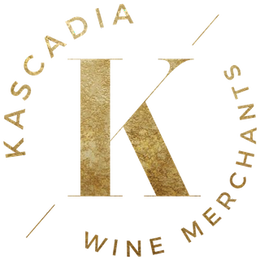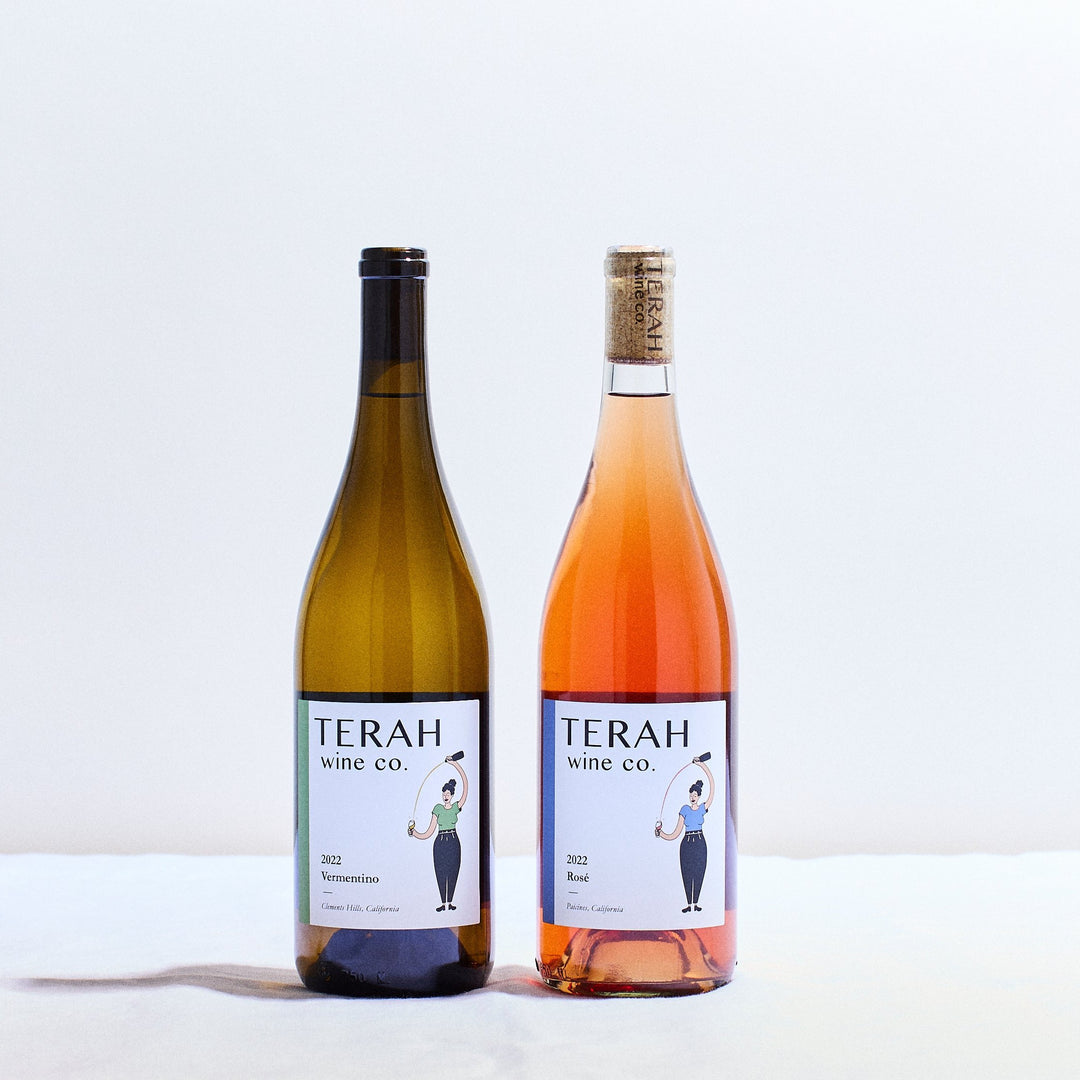Kascadia 6 Pack _ December 2024
HENRY OF PELHAM
Niagara Peninsula, Ontario, Canada


Awarded top Ontario Winery, at the National Wine Awards of Canada - Wine Align
Henry of Pelham’s 300-acre vineyard is located in the Short Hills Bench
sub-appellation of the Niagara Peninsula.
"In the late 18th century, our great-great-great grandfather was deeded the land on which our Ontario winery sits in present day St. Catharines. Fast forward six generations and we’re still on the family farm in the Short Hills Bench sub-appellation of the Niagara Peninsula." Six generations strong - see more.
HENRY OF PELHAM CUVÉE CATHARINE BRUT
70-80% Chardonnay with 20-30% Pinot Noir.
Named in memory of Henry’s wife, widow, and family matriarch, Catharine Smith, this wine is composed from the traditional grape varieties of Chardonnay and Pinot Noir to make a Niagara expression of a time honoured wine style. The secondary fermentation is done in-bottle and the wine is aged for up to 36 months on the lees. Elegant, toasty, and complex. All grapes are farmed by family-owned vineyards.
Awards
Silver - Champagne and Sparkling World Wine Awards 2022 Editor’s Choice - Wine Enthusiast Magazine The Enthusiast 100: The Best Wines of 2023, Wine Enthusiast Magazine 90pts, National Wine Awards 2024
Food Pairings
Salmon caviar with sour cream; Malpeque oysters with a hint of lemon. Or add 1oz of Riesling Icewine or 1oz of Cabernet Franc Icewine to 3oz of Cuvée Catharine to make a Kir Catharine or a Blushing Kir Catharine respectively.
BENJAMIN BRIDGE
Gaspereau Valley, Nova Scotia, Canada




Over two short decades, Benjamin Bridge has distinguished itself as Canada's premier sparkling wine house. In 1999, it all started as a labour of love with Nova Scotian entrepreneurs Gerry McConnell and the late Dara Gordon. Gerry and Dara met as lawyers, who held similar values in their respective areas of practice, including the rights of workers, gender equality, and improving the Nova Scotia economy.
Inspired by the early grape growers and winemakers in the region, Gerry and Dara invested in years of research to discover whether region-defining wines could be produced in the Gaspereau Valley.
With expertise from Canada and the world’s top oenologists, led by its chief innovator and head winemaker, Jean-Benoit Deslauriers, Benjamin Bridge has been unwavering in the singular pursuit of reflecting its precise set of growing conditions as transparently as possible.
Gerry and Dara’s twin daughters Ashley & Devon McConnell-Gordon now lead the small family-like team. As stewards of lands located in Mi’kma’ki, the ancestral and unceded territory of the Mi’kmaq First Nations, the team has carefully and meticulously grown Benjamin Bridge from a micro-boutique project into a dedicated sparkling wine house.
BENJAMIN BRIDGE NV BRUT
NV Brut is our in-house classic, layering richness from the older reserve wines with the vibrancy of young vintages. A non-vintage sparkling wine featuring a house style with blending components from our inaugural 2002 vintage, this handcrafted sparkling wine offers a true taste of our history.
In the glass, a pale golden colour with a straw hue. On the nose, the wine displays suggestions of smoke and lemon rind with strong sea minerals undertones. The palate is luscious, but with good intensity and vibrancy. Featuring both substantial structure and elegance, vibrant notes of lime blossom and hints of smoke echo through an expressive finish. Alcohol
Food Pairings
Enjoy on its own or pair with oysters, fish and chips or barbecued chicken.
BENJAMIN BRIDGE NV ROSÉ
Our NV Rosé captures the intriguing qualities of our Maritime climate and embodies our terroir’s unique ability to offer freshness, richness, minerality, and salinity all at once. Sibling to our flagship NV Brut, this méthode classique sparkling rosé sets itself apart with a hint of pink resulting from a skin soak of its Pinot Noir component, a slightly higher dosage, and a fruit-forward profile.
In the glass, a classic pale rosé colour. On the nose, suggestions of white cherries and strawberry rind with abundant sea minerals undertones. The palate is luscious but with good intensity and vibrancy. Hints of green apples and dried cranberries are magnified by the wine’s bright structure, unfolding in a lengthy mineral finish.
Recipe!
CARAMELIZED HONEY BAKED BRIE
Ingredients:
1 small wheel of brie or camembert
2 tbsp honey
2 tsp chili flakes
2 sprigs thyme, sage and/or rosemary, leaves removed from stems and chopped
Kosher salt & fresh black pepper
Fresh sourdough or a selection of your favourite crackers, to serve.
TERAH WINE CO.
Clements Hills AVA, California


A native Californian, Terah refined her unique style and found her love of wine by way of food and from her travels across the globe. She started her professional career in the hospitality industry studying at the International Culinary Institute in California. She then spent time working in wine bars, a Michelin-starred restaurant, wine education, and consulting in the Bay Area.
Terah ambitiously immersed herself into the international world of wine, studying Enology and Viticulture in both Spain and France. She completed 13 harvests covering five countries
"Terah Wine Co. practices minimal intervention in the cellar. Specifically, we want to maintain varietal typicity and vineyard expression in the finished product. For example, sulfur which is a naturally occurring by-product of fermentation is used minimally for stabilization purposes. We utilize science, personal experience, and intuition continuously in practice. Hand made in small batches, often with trials and experimentation. The goal is to push boundaries in an effort to consistently improve, excel, and make more enjoyable wine!"
2022 TERAH WINE CO. VERMENTINO
Vermentino is classically grown on the warm Mediterranean coasts of both Italy and Corsica. This grape is known primarily for being high in acid, and layered with minerality. Wine made from this grape typically screams for food, which is a perfect wine for the holidays!
Aromas of banana, lemon leaf, grapefruit pith, fresh fennel, and wool. On the palate, this wine has layers of texture, and a slight bit of grip from concrete aging while having a nice rounded oily finish. This wine is driven by its minerality, it's savory, sassy almost salty.
Food Pairings
Great with seafood (Oysters, carpaccios, fried fish, grilled squid, grilled prawns or shrimp), vegetable dishes (asparagus, peas, broad (fava) beans, fennel, and artichokes) , and light meats (pork tenderloin), especially with citrus or herbal sauces.
MEYER FAMILY VINEYARDS
Okanagan Valley, British Columbia, Canada


#2 Winery in Canada - 2024 National Wine Awards
In traditional French Burgundian style we focus on small case lots of varietals best suited and expressive of their unique place of origin with an emphasis on Chardonnay and Pinot Noir. We produce about 8,000 cases and strive to produce the finest wines possible. Our wines are hand harvested and hand crafted and we take great pride in each bottle of wine with great attention to detail.
2016 MEYER FAMILY GEWURZTRAMINER
Sweet perfumed pear, lime blossom, starfruit fill this lean framed but voluptuous gewürztraminer. Here, gew's lushness meets Okanagan Falls acidity. Planted in 1994 on sandy and gravel loams, this was picked in stages, partial whole bunch, partial skin contact, and entirely native fermented, long and cool in stainless and older French oak where it was left on lees for a further three months post ferment. This is a level of attention not often seen in gew in Canada, and it shows. Meyer Family Vineyards' wines need time in bottle after release to really shine, and this library vintage is at it’s prime!
Food Pairings
Here is an amazing recipe pairing for this delicious gewurztraminer by the one and only, "The Tipsy House Wife".
Bleu Cheese & Bacon Savory Cheesecake with A Pretzel Crust
Spicy cuisine, such as aromatic asian, thai and indian dishes. Ex: grilled poultry with curry, wok and rice noodles, a platter of spring rolls. Aromatic cheeses such as Munster, Maroilles or all blue or blue-veined cheeses like Roquefort.
WINEMAKER'S CUT
Okanagan Valley, BC, Canada


A winemaker's passion forged in Slovakia, perfected in Canada. - Winemaker, Michal Mosney's passion for winemaking was born in Slovakia, but it has blossomed in the lush vineyards of Canada's Okanagan Valley. After honing his craft as the winemaker behind the scenes at various labels, Michal was ready to craft his masterpiece: Winemaker's CUT. Staying true to his classical European training, Michal plays Mozart and Chopin for his grapes as they ripen on the vine and serenade his fermenting wines in the cellar. His sustainable, artisanal methods produce wines of purity, balance and complexity.
2020 WINEMAKER'S CUT BOHEMIAN PINOT NOIR
This stylish, savoury Pinot Noir shows well-defined black cherry fruit with layers of sweet spices and underbrush. It’s elegant and pure, with succulent, mouthwatering acidity and finely integrated, supple tannins. Alcohol 13.5%.
Food Pairings
Grilled steak, roast chicken, and most cheeses. Some classic pairings are salmon, mushrooms, and duck. Try barbecue chicken and ribs!
BLACK SWIFT VINEYARDS
Okanagan Valley, BC, Canada


Black Swift Vineyards is a premium wine venture based on the rapidly evolving regions of the Okanagan and Similkameen Valleys.
Thus it is our quest to create the first exclusively single vineyard, multi-regional wine project in British Columbia; one which seeks to capture the diversity of our young, but exceptional region. We feel that it is only by focusing on the various smaller districts (which will one day no-doubt become officially recognized sub-appellations), that we can claim to pursue this project in earnest. It is our belief that this is the way to truly explore the notion of terroir in our great emerging region.
The linking of our project to the Black Swift is no coincidence. Native to the Okanagan, the rare sighting of a Black Swift is an experience prized by birders. It is famous for its high arching flight, slow and precise wing beat, and its unique reliance on a single egg for each year’s procreation. Inspired by this distinctive bird, we aspire to yield great wines…one vineyard at a time.
2015 BLACK SWIFT MONARCH SYRAH
A phenomenal Syrah from The Hatch in their Osoyoos bench. The nose has aromas of smoke and blackberry while the pallet has flavors of blackberry, pepper and smoke and leather. Beautiful long finish. Pure awesomeness!
Food Pairings
Smoky flavors of grilled meats like steak, lamb, pork, burgers, or eggplant. Syrah's full-bodied nature and robust flavors complement the deep, savory flavors of stews like beef bourguignon or lamb shanks, and aged cheeses like cheddar, gouda, or Manchego.




